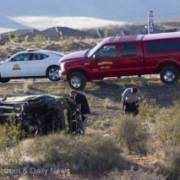Paying Medical Bills When You Don’t Have Health Insurance
Imagine yourself in this situation: you were injured in a car crash and treated at the hospital emergency room. Ever since the accident, your daily routine has been disrupted because you have to make time for doctor and physical therapy appointments, and, perhaps, appointments with additional medical providers because of your injuries. To make matters worse, you don’t have health insurance and are not sure how you’re going to be able to pay your medical bills that are piling up.
Common Situation Whether the cause is the downturn in the economy or other reasons, many people don’t have health insurance these days, yet they find themselves with mounting medical bills after an accident. They’re extremely frustrated because they need the medical care and treatment, but are perplexed as to how they are going to be able to pay their bills.
Why Doesn’t the At-Fault Party’s Insurance Company Pay the Bills? There are several reasons that the liability insurance company does not make payments while a person is being actively treated for their injuries. One reason is that it is more efficient to make a one-time payment rather than piecemeal payments throughout the entire length of treatment. Another reason is that the case may ultimately have to go into litigation which will affect the final settlement amount. For these reasons and others, the at-fault party’s insurance company will wait until a person has been released from medical care before making payments to medical providers.
The Starting Point In Utah, the No Fault portion of an automobile insurance policy carries a minimum of $3,000 medical payment coverage for accident-related medical bills. This coverage is available to each person in the car—not just the driver. No Fault funds are not sent to the injured person; they are sent directly to the medical provider’s office. For example, if you as an injured person have been transported via ambulance to the emergency room and No Fault funds are available, the ambulance company will submit its bill to the No Fault insurance carrier who will, in turn, send the payment directly to the ambulance company.
No Fault benefits are the starting point of coverage after an accident. However, after the No Fault benefits have been completely used up, those funds are considered exhausted and no more medical bills will be paid from that source. These benefits are extremely beneficial to pay medical bills that are incurred in the initial days following an accident.
The Question As a patient, it is ultimately your responsibility to pay the bill that is incurred with a medical provider. What is to be done, however, when your medical bills exceed what is available through the No Fault coverage, and the liability insurance has not paid its settlement amount yet, and you do not have any health insurance?
We Can Help Every day at our office we work with people who have accident-related medical bills but no health insurance to pay those bills. If you or someone you know is in that situation, you are welcome to contact our office at (435) 673-9990 to schedule a free consultation to discuss the case. We are able to let you know what your options are when it comes to getting and paying for medical treatment.
At McMullin Injury Law we are… In Your Community and On Your Side!




